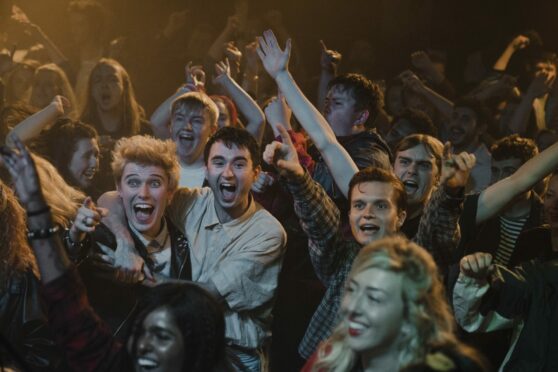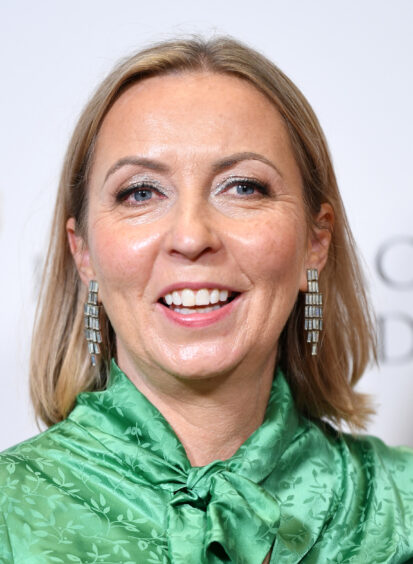
It is a tale of enduring friendship, of music and mates, and love and loss.
And, for executive producer Claire Mundell, the fact that boys and men are the focal point for a TV adaptation of Andrew O’Hagan’s acclaimed novel Mayflies is refreshing.
The poignant and positive image of male friendship celebrated in O’Hagan’s book, is, Mundell believes, in stark contrast to what is the often seen in contemporary TV dramas.
“One of the reasons that I was attracted to the book is that we know there are negative aspects of masculinity and we’ve rightly had a lot of portrayal of toxic masculinity in film, television and the media in general,” she said.
“But fortunately, for me and most people I know, our experience of masculinity has been a positive thing. I grew up with men like Tully and Jimmy and this felt like something that I hadn’t seen portrayed on screen. We’ve seen gay love stories between men portrayed, but actually where are the straight, platonic love stories between men about friendship?”
She continued: “It’s a really sweet story that reminds the audience of the nuances of friendship. Often, the tenderness and emotions of friendships are associated with women but it’s not exclusive to women.”
Mundell says ensuring her lead actors captured that chemistry felt like casting for a romantic comedy. And the Glasgow-based producer couldn’t think of two finer Scottish actors than real-life friends Tony Curran and Martin Compston.
She said: “Tony and Martin have been friends for years so it felt like the opportunity to have them portray a friendship that is actually as real in life as it is on screen was too good to pass up.”
Mundell, founder and creative director at Synchronicity Films, the production company behind other book-to-TV adaptations including The Cry and upcoming The Tattooist of Auschwitz, knew immediately who would be best to translate the book to the small screen, Andrea Gibb.
From the moment she persuaded O’Hagan’s agent to show her an early copy of his Mayflies manuscript, Mundell was determined to see the screen adaptation made in Scotland. The novel powerfully details two best friends on a teenage trip to a Manchester music festival with an emotional account of how, now adults, one asks the other to help him die after an awful diagnosis.
“Every now and then a story like this will come along that needs to be made by Scottish talent,” said Mundell. “What’s refreshing about Mayflies is that these working-class boys are cultured. They love music and film, they talk to each other with wit, humour, and insight. That’s often not how those characters are portrayed, so it felt like an opportunity to portray those characters in a truthful way.
“The universality of this story about facing your mortality – working out what makes a good life and what makes a good end – is something that we all understand, as we all know people who have faced a terminal diagnosis.”
That is sadly the case for the film’s writer, Andrea Gibb, who penned the screenplay for Elizabeth Is Missing.
“As a book about male friendship, it might seem counterproductive to go to a female writer but Andrea knows what it is like to live with someone you love who is facing a terminal diagnosis; her partner, who was a very good friend of mine and my husband’s, so we had all lived through that with her. I knew she would know exactly how to tell this story and she has done so beautifully.
“We made our pitch to Andrew and said, you could take this to America, to international producers, but I promise you, nobody will understand it in the way that we do because we have lived it. And he bought into that.”
Mayflies, BBC Scotland, December 27 and 28 at 10pm and on iPlayer

Enjoy the convenience of having The Sunday Post delivered as a digital ePaper straight to your smartphone, tablet or computer.
Subscribe for only £5.49 a month and enjoy all the benefits of the printed paper as a digital replica.
Subscribe © James Veysey/BAFTA/Shutterstock
© James Veysey/BAFTA/Shutterstock